Vitamin D is one of the essential vitamins that the body needs to function. It is a family of compounds that includes vitamins D1, D2, and D3. It is naturally produced by the body as a response to exposure to the sun. The body also gets vitamin D from eating foods that are rich in vitamins, as well as fortified vitamins.
Vitamin D has so many benefits to the body, including
- Vitamin D strengthens the bones as it aids the absorption of calcium. Calcium is necessary for the growth and development of strong and healthy bones. Vitamin D would make it easier and faster for the body to absorb calcium. This would help prevent the bones from being brittle and also reduce the risk of osteoporosis.
- Vitamin D also helps strengthen the muscles. In this aspect, it is particularly good for the elderly as it can help them maintain better support for their muscles as stronger muscles would reduce the risk of falls, which is more prevalent during old age.
- Vitamin D supports the proper functioning of the immune system, brain, and nervous system.
- Vitamin D helps to regulate mood and decrease the risk of depression. Research has shown a link between depression and a lack of vitamin D, which may prove that proper intake of vitamin D would fight depression.
- Vitamin D may help support weight loss. Studies have shown that obese people who were losing weight included vitamin D in their diet compared to those who did not eat vitamin D-rich food.
- Vitamin D deficiency could lead to symptoms including fatigue, hair loss, muscle pain, low mood, and more. To prevent all of that, you have to make sure you take in enough Vitamin D.
10 Vitamin D Foods In Nigeria
The recommended daily value (DV) of vitamin D is 800 IU (20 mcg) per day from foods. These are some of the Nigerian foods that are rich in vitamin D:
1. Fish
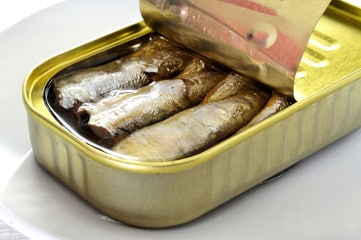
Some fish like mackerel, salmon, sardine, and tuna, are rich in vitamin D, as well as a range of other essential vitamins and minerals. Catfish is another popular fatty fish and a great source of vitamin D.
2. Egg yolk
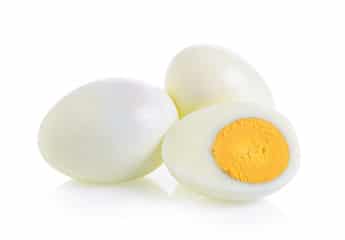
Eggs are nutritious, but the part of the egg that contains the most nutrients, including vitamin D, is the yolk. The vitamin D content in one egg yolk depends on several factors, including the quality of the feed and if the chicken that laid the egg received enough sunlight. Either way, you can still expect to take in vitamin D when you eat eggs.
3. Mushroom
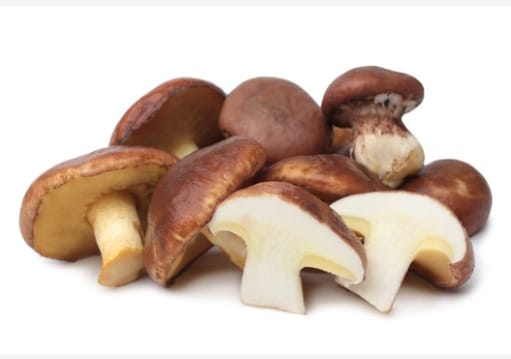
Mushrooms are very healthy and nutritious. In Nigeria, people often use it as a garnish for soups and other meals. A common edible mushroom in Nigeria is the slippery jack mushroom. Slippery Jack is a good source of vitamin D and is an excellent option for those who are vegan or looking for a non-animal source of vitamin D.
4. Beef Liver
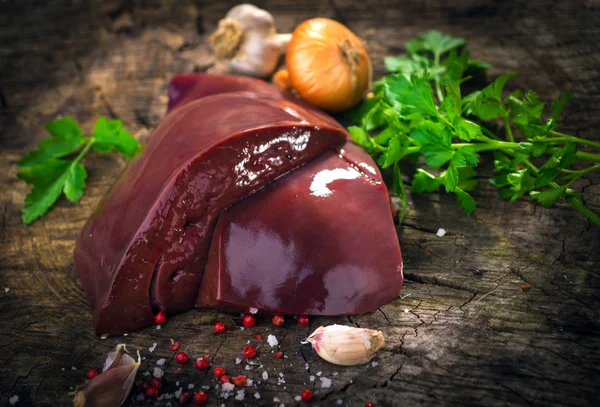
Beef liver is one of the best sources of vitamin D from animal protein. It contains more protein than red meat and is a healthier option. 100 grams of beef liver contains 1.1 McG of vitamin D.
5. Fura da nono
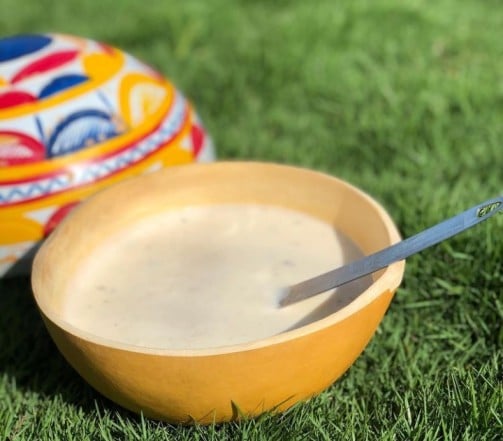
Fura da nono is a local type of gruel made from millet balls (fura) and cow milk (nono). It is a popular dairy product in Nigeria. Fura da nono is extremely rich in vitamin D, as well as many nutrients other such as calcium, phosphorous, and riboflavin.
6. Pork
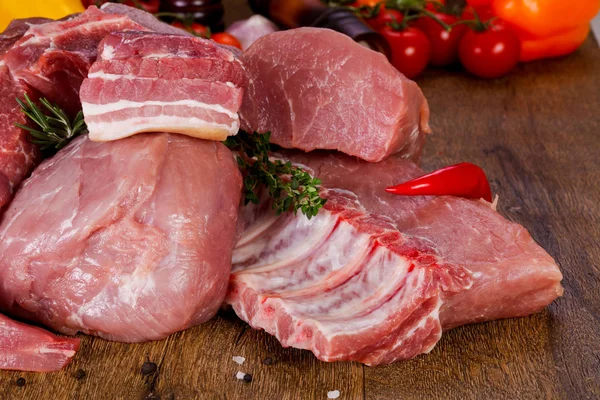
Pork is the meat obtained from a domestic pig. It is generally high in vitamin D. In fact, 100 grams of boiled pork contains 1.3 mcg of vitamin D. Pork meat is popular in Nigeria and is added to many delicacies.
7. Stockfish
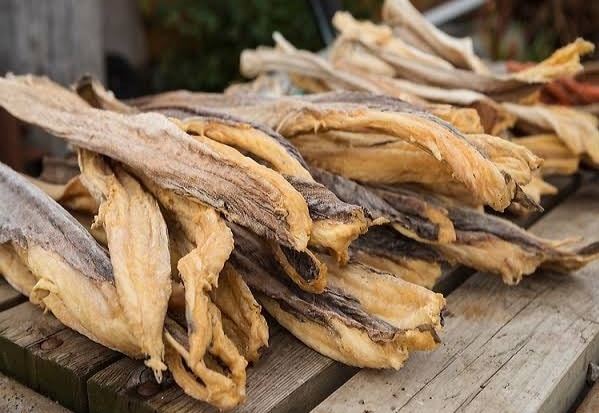
Stockfish, also known as cod, is a popular type of fish in Nigeria and around the world. It is often used in soups due to its ability to enhance taste and aroma.
The fish is dried in cold air for several months, which preserves it and allows it to be stored for a long time.
When cooked, it regains most of its weight and is ready to eat. Most of the stockfish consumed globally is shipped from Norway.
Stockfish is extremely rich in vitamin D and other important nutrients.
8. Custard Powder

Custard powder is a milk-derived ingredient that is free from artificial flavors and preservatives. It can be added to various foods such as waffles, pancakes, pastries, and puddings.
In Nigeria, it is commonly used to make a breakfast meal known as custard and is also popular for babies. It is a popular baking ingredient as it adds flavor and helps to make baked goods light and fluffy.
Also, lactose-intolerant individuals can use it as it contains no dairy products.
Custard is also a great source of vitamin D, as 260 g of Custard contains 3.38 mcg vitamin D.
9. Kefir
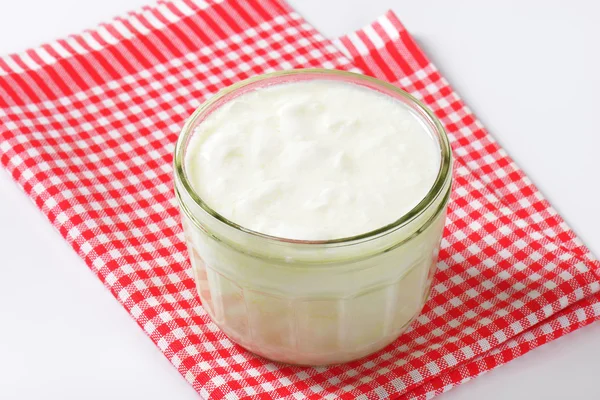
Kefir is a fermented milk drink similar to yogurt, but with more nutrients. It is made using kefir grains, which contain the necessary yeasts and bacteria to ferment milk into kefir.
This drink is easier to make at home and has been consumed for centuries in many cultures worldwide, although it is not as popular as yogurt in Nigeria.
A 1 cup serving of low fat kefir contains 2.4 mcg of vitamin D, which is about 12% of the DV.
10. Vitamin D Fortified Foods
This includes cereals, dairy, orange juice, yoghurt, oatmeal, and more. These are regular foods that have been fortified with extra nutrients, like vitamin D, to provide the body with more of the vitamin.
Conclusion
Adding these foods to your daily diet would make sure you get an adequate intake of vitamin D. You can also take vitamin D fortified supplements to increase your vitamin D intake.
YOU SHOULD ALSO READ:
- 10 Healthy Nigerian Foods Rich in Vitamin K
- 10 Nigerian Foods Rich In Vitamin C
- 13 Nigerian Foods That Are Rich In Vitamin E
- 10 Nigerian Foods Rich In Omega-3 Fatty Acids
- 7 Healthy Iodine-rich Foods In Nigeria
- 5 Healthy Nigerian Alkaline Foods
- 7 Healthy Nigerian Foods for Hypertensive Patients
- 13 Healthy Nigerian Foods Rich In Magnesium
- 8 Nigerian Foods That Are Rich In Folic Acid
- 10 Healthy Nigerian Foods For the Elderly
- 15 Healthy Nigerian Foods Rich in Vitamin K
- 15 Healthy Nigerian Foods Rich In Vitamin C
- 15 Healthy Nigerian Foods With Low Cholesterol
- 15 Nigerian Foods With Low Glycemic Index
- 8 Healthy Nigerian Foods for Kidney Health
- 11 Healthy Nigerian Foods You Can Cook Without Oil


